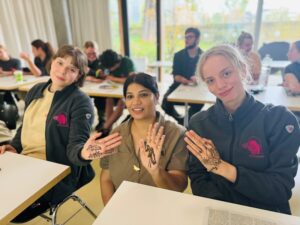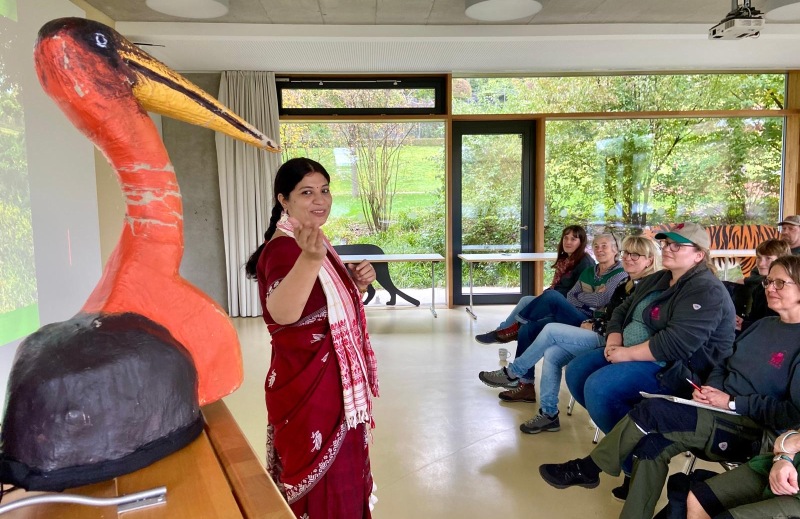Guwahati: Renowned conservationist and Whitley Gold Award winner Dr. Purnima Devi Barman from Assam conducted a special environmental workshop at Wilhelma Zoological and Botanical Garden in Germany on Friday. The workshop incorporated a ‘panchamrit’ ceremony (baby shower) for the Greater Adjutant Stork (Hargila).
The event, organized for 20 conservation-oriented youths, zookeepers and gardeners, was a combination of education, art and environmental awareness in a unique way.
Dr Barman began the session by introducing the participants to the rich biodiversity of Assam, focusing particularly on various species of storks, including the rare Greater Adjutant Stork (Hargila).
She called upon all the youths to acquire deep love for the biodiversity around them. She also shared the inspiring journey of the “Hargila Army,” a community-driven conservation initiative led by the women of Assam to protect the Hargilas and its habitat.
The workshop included songs focused on environmental education and a symbolic ‘Panchamrit’ ceremony, highlighting the importance of care and nurturing for the well-being of Hargila chicks.
She played Assamese Naam Kirtan (community prayer) and requested the students to connect with the Assamese women from the Hargila Army.
Dr. Barman explained the importance of the ‘Panchamrit’ ceremony, highlighting that expectant bird mothers deserve the same respect and celebration. She encouraged the participants to adopt a similar practice.
She described how she and her team celebrate baby showers for Hargila every year to raise awareness about mother Hargilas and their offspring.

The workshop featured a variety of creative activities, including Hargila-themed painting and ‘jetuka’ art and music. Dr. Barman engaged participants in these activities, encouraging them to connect with conservation efforts through art and culture.
A highlight of the event was the Assamese Naam-Kirtan performance by the Hargila Army.
“Meeting these young people fills me with hope and optimism. They are truly the solution to the challenges we face in conservation. I want to meet young people worldwide, inspiring them to love nature and become nature ambassadors,” said Dr. Barman.
On October 16, Dr Barman conducted another successful workshop with 20 conservation educators at Wilhelma, focusing on Hargila conservation and the importance of coexistence education.
She participated in a teachers’ training program at Wilhelma Zoo, sharing her experiences from Assam’s environmental education programs and emphasizing the importance of educating the next generation to protect nature.
Dr. Barman’s workshops in Wilhelma showcased Assam’s biodiversity and culture, emphasizing the global importance of conservation and the role of education, art, and cultural exchange in inspiring communities to take action for the conservation of endangered species like the Greater Adjutant Stork.















